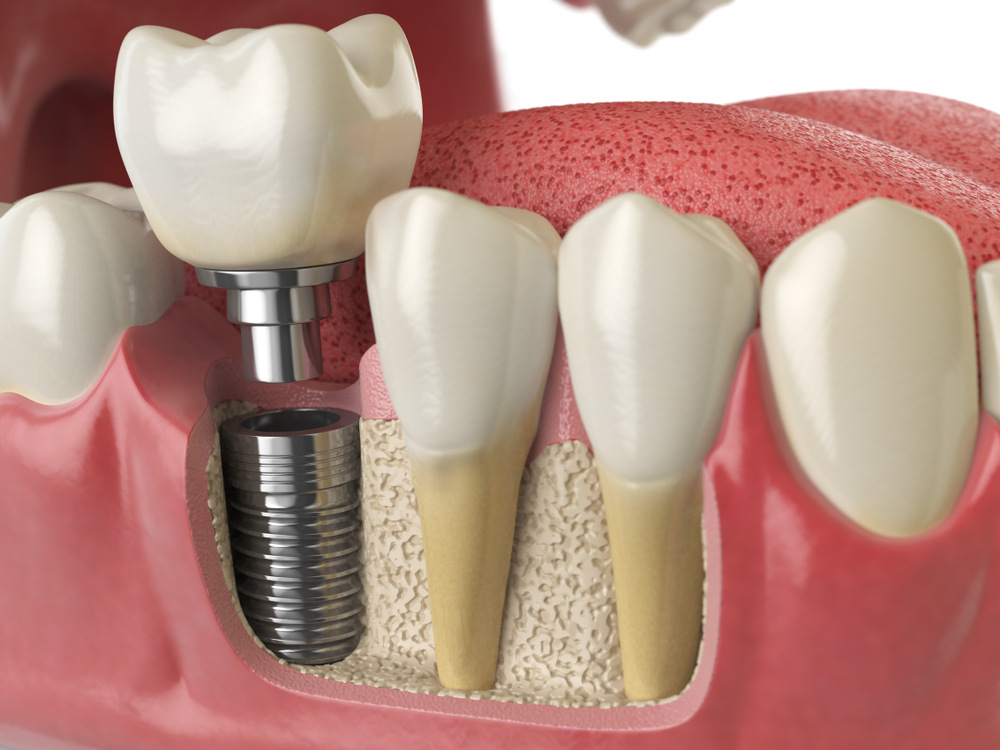
Embarking on the journey to regain a perfect smile through dental implants is often a life-changing decision. However, as with any medical procedure, it’s essential to delve into the potential long-term implications. While dental implants are celebrated for their durability and success rates, there’s a lingering question: Can dental implants cause problems years later? Are there any dental implant side effects? Let’s explore this inquiry and shed light on the intricacies of dental implant longevity.
However, something will occasionally go wrong, causing patients to face dental implant difficulties years later.
While it is uncommon, it is not impossible. These concerns can become major sources of stress for those patients who encounter them. The pain, combined with the necessity for additional dental work, might be daunting.
What are dental implants?
Dental implants have revolutionized the field of restorative dentistry, offering a permanent solution to missing teeth. The procedure involves surgically placing titanium implants into the jawbone, providing a robust foundation for artificial teeth. The success rates of dental implants near you are remarkably high, with many patients enjoying improved functionality, aesthetics, and overall oral health.
Period of Stability
In the first few years post-implantation, patients often experience a period of stability and comfort. The implants fuse with the jawbone in a process called osseointegration, ensuring a strong and lasting bond. During this golden period, individuals revel in the joy of a fully restored smile without significant concerns.
Potential Problems That May Arise
Despite the initial success, it’s crucial to acknowledge that unforeseen issues can surface years after the implant procedure. Some common problems include:
1. Implant Failure
In rare cases, dental implant problems can occur years later. Factors such as poor oral hygiene, smoking, or underlying health issues may contribute to the loosening or detachment of implants.
2. Peri-Implantitis
This inflammatory condition affects the tissues surrounding the implants. If left untreated, peri-implantitis can lead to bone loss and compromise the stability of the implant.
3. Bone Resorption
Over time, natural bone remodelling may cause changes in the jawbone density around the implant site. Excessive bone resorption can affect the implant’s stability and require additional interventions.
4. Prosthetic Complications
The artificial teeth attached to the implants may face wear and tear over the years, potentially leading to issues such as chipping, cracking, or discoloration.
Preventive Measures and Long-Term Maintenance
To mitigate the risk of problems years later, proactive measures are essential:
1. Robust Oral Hygiene
Maintain diligent oral hygiene practices, including regular brushing, flossing, and professional dental cleanings.
2. Regular Check-ups
Schedule routine follow-up appointments with your dentist to monitor the health of your implants and address any emerging issues promptly.
3. Lifestyle Choices
Adopt a healthy lifestyle by refraining from smoking and moderating alcohol consumption, as these habits can impact the long-term success of dental implants.
Find relief from your dental implant issues,
Dental implants have undeniably transformed countless smiles, offering a reliable and aesthetically pleasing solution for missing teeth. While the majority of patients enjoy years of trouble-free implant function, it’s essential to be aware of potential problems and take proactive steps to ensure the longevity of your dental implants. By embracing proper oral care and regular check-ups, you can navigate the years ahead with confidence, preserving the brilliance of your revitalized smile. Dental implants are a necessary operation for many people. They solve a multitude of common problems and can significantly improve people’s quality of life.
When they perform properly and heal successfully, a patient can expect a long-term remedy. However, if there are any difficulties with the dental implants years later, the patient should consult a dentist in SW Calgary right away. The new dentist will be able to resolve the issue and provide the patient with additional relief. Contact Beyond Dental soon if you need work done on your dental implants!
